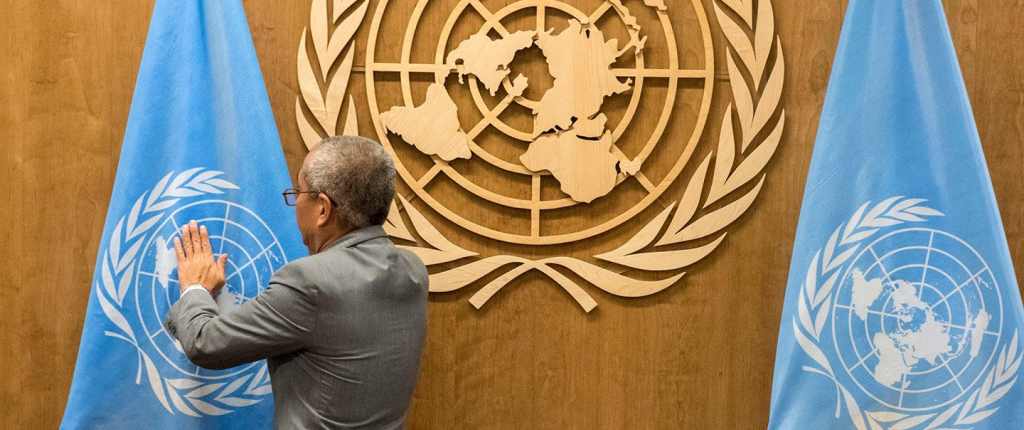This past Saturday Russia began its presidency in the UN Security Council (UNSC) that will last for the whole month of April 2023. Russia took its turn among the 15 UNSG members, 5 permanent and 10 non-permanent ones, despite the calls from all corners of the world to skip Russia’s presidency. And the reasons for these calls were thoroughly justified.
Firstly, during the previous Russian UNSC presidency in February 2022, Russia invaded Ukraine, while hypocritically and barefacedly lying that it did not have the intention to do so. After Russia did invade Ukraine from the north, the east and the south, it declared that it’d need just 3 days to topple a Nazi regime for the good of the Ukrainian people from.
However, the heroic resistance and unprecedented unity of the Ukrainian nation forced the Russian invaders to flee, while also making hypocritical that the retreats and routs were “gestures of goodwill,” radical reduction of military activity,” and “regrouping.”
Secondly, this Russian UNSC presidency is a spit in the face of the UN nations that cast their votes in the UN General Assembly denouncing the Russian aggression against Ukraine. On March 2, 2022, a week after Russia embarked on its full-scale war with Ukraine, the UN General Assembly adopted a resolution rejecting the Russian Federation’s invasion and demanding that its forces immediately withdraw from Ukraine and abide by international law. Nations of the UN voted for this resolution in an overwhelming majority of 141 against 5.

Among the current fifteen UNSC members,
- only Russia itself voted against the UN resolution, while
- thirteen nations voted in favor: France, UK, US (three permanent UNSC members), Albania, Brazil, Ecuador, Gabon, Ghana, Japan, Malta, Switzerland, and UAE, and
- two nations abstained: China (permanent UNSC member) and Mozambique
Russia’s presidency will be the waste of time for the UNSC members and the whole world because in the recent past, Russia abused the UNSC seat to “filibuster” others.
Just in March 2023, Russia tried to bring to a UNSC meeting a Chinese-furniture-importer-turned-human-rights-lawyer by name Daria Morozova, 34 y.o., from the territory of Ukraine occupied by Russia.

At that time, Albania took the floor, condemning the Russian Federation’s deplorable attempt to misuse the UNSC for narrow interests. Reaffirming commitment to the participation of civil society briefers in the UNSC work, Albania stressed that the Russian Federation’s attitude is a deviation from this, as Daria Morozova, the proposed briefer, is not competent to the purpose at hand. The UNSC then rejected the proposal to extend an invitation to Ms. Morozova
Thirdly, the UNSC work procedures have been a matter of frustration internationally. While the UN costs a lot of money for taxpayers from around the world, it is out of step with the contemporary time. UNSC permanent members don’t include any African or Latin American nation, include China but not India, include France but not Germany, and on and on. Worst of all, Russia took the place of the former Soviet Union in the U.N. as a result of a tacit consent that has lasted more than three decades. The UNSC permanent seat was bestowed in 1945 by the UN nations on the Soviet Union, Ukraine and Belarus in recognition of their collective role in defeating the Nazis, while Putin’s Russia exhibits traits officially that are look-alike with Hitler’s worldviews.
The likes of filibusters are no longer an option for parliamentarians and congresspeople around the world. Reforms of international institutions also do take place. The IMF and World Bank lowered the share of the US and increased the shares of the European countries, Japan, Saudi Arabia, China, and others in recognition of their growing economic roles as constituent nations for international prosperity. UN General Assembly embraced new nations that gained independence, growing the voters from 51 to 193.
The UN Security Council must adjust its rules to be more helpful in maintaining peace. Otherwise it will only generate frustration instead of helping the international community to negotiate peace.

